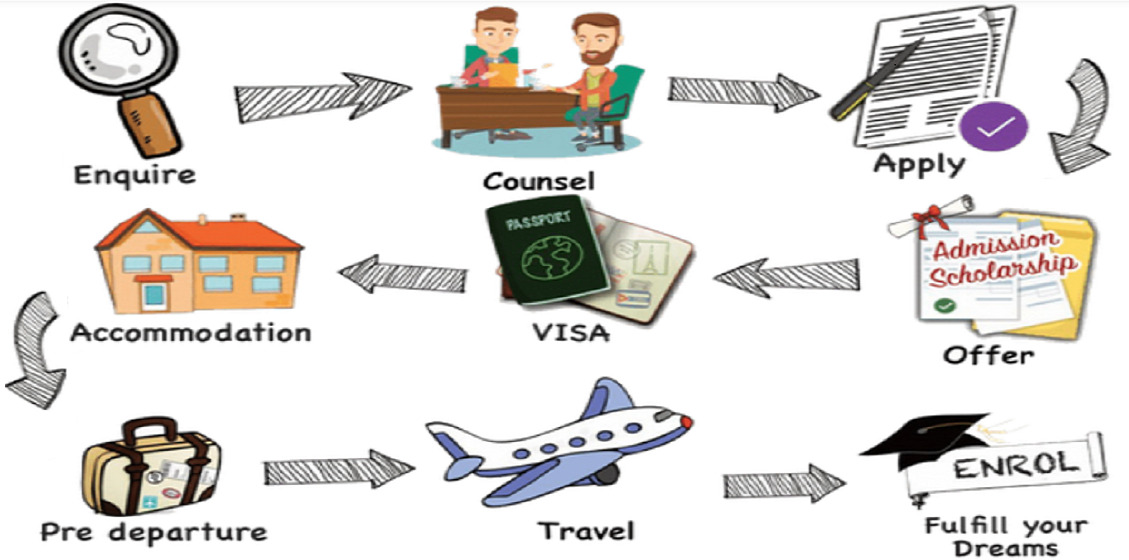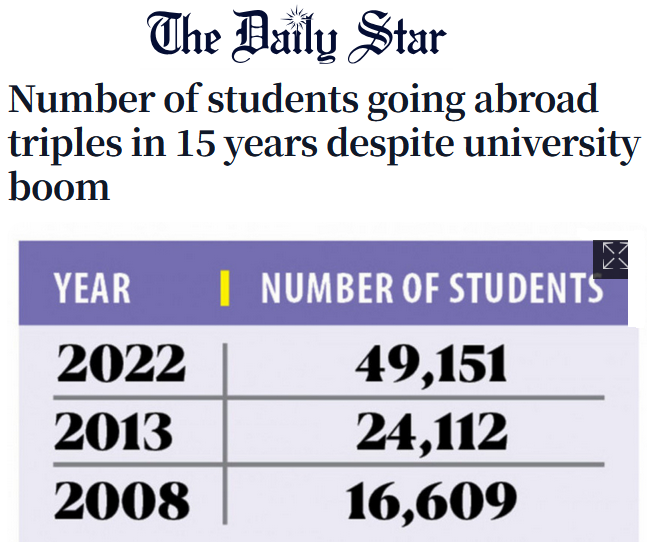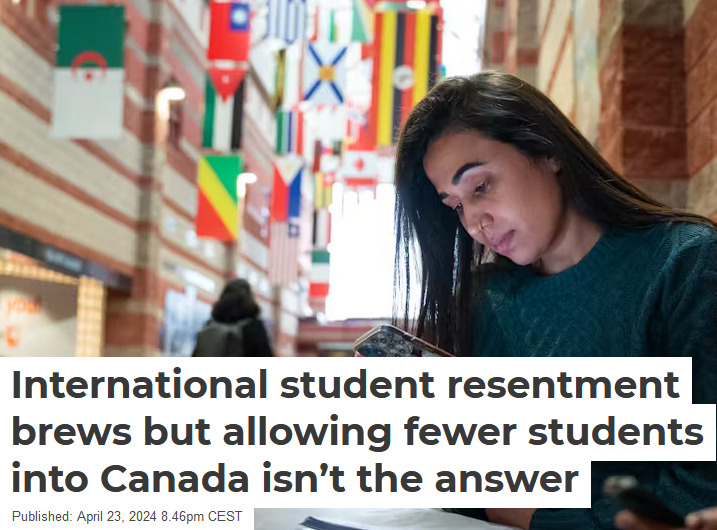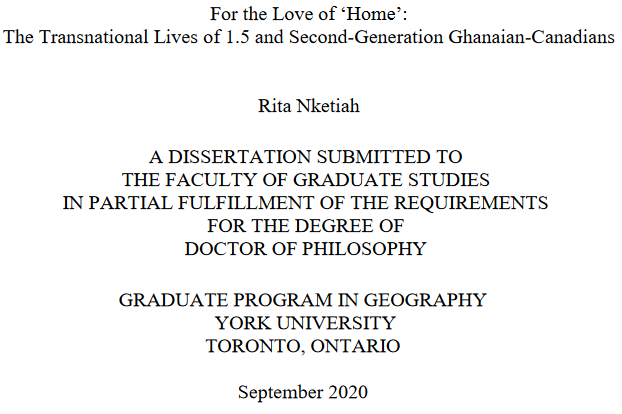Denmark has emerged as a preferred destination for Bangladeshi students seeking higher education, experiencing a notable surge in their enrollment over the last five years. While a substantial portion of these students excel academically and pursue diverse paths post-graduation—such as returning to Bangladesh or relocating to other countries with developmental project works, or settling in Denmark for enhanced opportunities, not settling for any less—a concerning inclination has emerged with some failing to complete their programs. This trend of dropout poses significant challenges, not only for the affected students but also for educational institutions and the broader education system of Denmark, as this might impact the educational environment and reputation and challenge the sustainable progress in academic sphere.
Such withdrawal from studies not only impacts individual academic pursuits but also undermines the overall educational infrastructure and goals of the country. This issue is particularly worrisome in Denmark, where there is a growing demand for a skilled and educated international workforce to fuel economic growth and innovation.
Furthermore, there are reports apprehending that a fraction of Bangladeshi students may not be fully dedicated to their studies and have been implicated in plagiarism. This raises questions regarding the underlying motivations for pursuing education in Denmark. Is there a possibility that some students are exploiting student visas to gain access to Denmark’s labor market rather than for genuine academic purposes? It might also impact the immigration and educational authority´s decision in coming days, being skeptical over motivated students’ application too.
Interviewing Bangladeshi Students with different experiences
To delve deeper into these concerns, we conducted interviews with three Bangladeshi students currently enrolled in Danish institutions. These interviews aimed to shed light on the challenges faced by Bangladeshi students in Denmark and to explore potential reasons behind the dropout rates and instances of academic misconduct. Despite encountering difficulties in securing interviews due to privacy concerns, we managed to obtain insights from three anonymous participants: one who dropped out midway through the studies, another who successfully completed the master’s program, and a third currently pursuing a master’s degree after completing their bachelor’s in Denmark.
Our initial interviewee, whom we’ll identify as “Mest,” embarked on his academic journey in Denmark in September 2018.
Mest: “I was studying in private university in Bangladesh, where I have done four semesters in Computer Science, but I realize that for a good career in the future, I need a foreign degree. So, my initial plan was to go to USA, but couldn’t manage to get the visa. I was looking for the alternatives. Through an agency in Bangladesh, I learned about educational opportunities in Denmark and decided to pursue studies here.”
Although Mest’s fundamental intention upon arriving in Denmark was to pursue his studies, he eventually opted to discontinue his program. Through our discussions, he shared insights into the challenges he encountered, leaving him utter demotivated with studies. He induced us to explore potential solutions to facilitate a smoother academic journey for international students like him.
Despite encountering numerous challenges and obstacles, our second interviewee, whom we will refer to as “Ronald,” successfully completed his bachelor’s degree at non-Danish curriculum affiliated business college and is currently pursuing a master’s program in Denmark.
Ronald: “After completing my 12th grad, I was working a private tutor in Bangladesh. However, due to a four-year gap following my 12th grade, I faced difficulties securing admission to a bachelor program in Bangladesh, where a gap of two years after completing 12th grade can present obstacles to enrollment. Moreover, I was disheartened by the socio-economic situation in Bangladesh. Recognizing the potential benefits of obtaining a foreign degree, I sought opportunities abroad. Initially, I applied for a student visa to Canada and received an offer letter from a university there, but unfortunately, I was unable to secure the visa because of inadequate financial stability. Therefore, I redirected my effort toward Denmark.”
Similarly, our third interviewee´s, whom we will refer to as “Crist,” first choice was Canada. Despite Denmark not being his initial choice.
Crist: “I wanted to study in Canada, but my uncle was living here in Denmark, so it was easier for me to come here and study. I finished my BBA from a renowned university in Bangladesh. And I have completed my master’s degree from a well acknowledged Danish university, achieving academic success. However, despite my qualification I faced challenges in securing employment in my field over the past decade.”
Through our discussions with Ronald, Crist, and Mest, we identified common problems faced by international students in Denmark. We will now explore these issues as well as potential solutions to address the challenges encountered by international students pursuing education in Denmark.
Dilemma for House and CPR Conundrum
All our interviewees have mentioned about this problem. Three of them faced these challenges, but Mest is the one who suffered a lot because of this.
Mest: “Before coming to Denmark, I have tried to secure a place using social media, but anyway I have failed. Within first four months I had to relocate myself three times. When all my classmates were focusing into the study, I was struggling to secure an accommodation for me. I was struggling with my accommodation. And in the first semester, one day I had to go to see an apartment and couldn’t attend the class, and on that day the group was formed for the project. Next day I came to know about that, I tried to get into a group, but I failed, later I had to do my project alone.”
“It was difficult for me to find a good place; I was very new in Denmark. I didn’t have any idea about CPR and other requirements. I did contact with my university, but there is no help from them. I feel it is difficult for an international student to adopt with this problem in the very beginning. Usually, we get the visa just before the study program, so within a short period of time it is hard to manage these challenges.” Mest added.
We also asked Ronald, about his experience, and he replied – Ronald: “First of all, the Danish embassy provides you a visa just one or two weeks before your course starts, At the beginning, you must figure out how to get a CPR. There is not a single information provided about it, and it is very confusing.”
Contrastingly, Crist had a somewhat smoother experience initially due to his uncle’s presence in Denmark, “I was lucky because my uncle was living here, so when I arrived here, I didn’t have to face the challenge, but I knew some of my classmates were struggling with this. And not only Bangladeshi I guess all the internationals are facing this problem till today.”
Mest reflected on the broader implications of such housing struggles: “Even though you have money to pay the rent, you won’t find a good house for you. So many universities don’t have dormitories, and if they do, it’s often insufficient to accommodate all students. When you don’t have a good place to stay, it is difficult to focus on study. And if you are lucky enough to get one, you don’t know for how long you’ll stay there.”
Banking Barriers for Students
According to Ronald’s statement, the process of opening a bank account for an international student in Denmark can be compared to climb over Everest.
Ronald: “When I wanted to open a bank account it took me 4 months. The bank is asking for a job contract and many other documents, even some banks directly said they don’t want to open a bank account for a student. I was carrying all the money with me all the time which I brought from my country, because I was living in a shared apartment with others I don’t even know.”
“I also faced challenges in adapting to the Danish currency, often feeling anxious about the safety of carrying cash when making purchases.
Crist remarked, “It is difficult for a new student to understand all the paperwork; it should be easy for them. There should be some help from the university. I managed to get a parttime job in a restaurant but couldn’t be able to get my salary for three months because I didn’t have bank account.,”
Interestingly, Mest, our initial interviewee, did not initially mention this banking struggle. However, upon further inquiry, he confirmed experiencing similar challenges, “Yes I also experienced the same, it was difficult to open an account because the bank asks for some paperwork, which as a newcomer difficult to manage”.
Managing tasks like opening a bank account, finding suitable housing, and staying focused on studies is not easy. But the journey doesn’t end here, there are more challenges ahead that we will explore in detail in the second article.
Sabbir Irfan, BA & M.Sc. History and Culture, University of Chittagong, DDRN intern.









